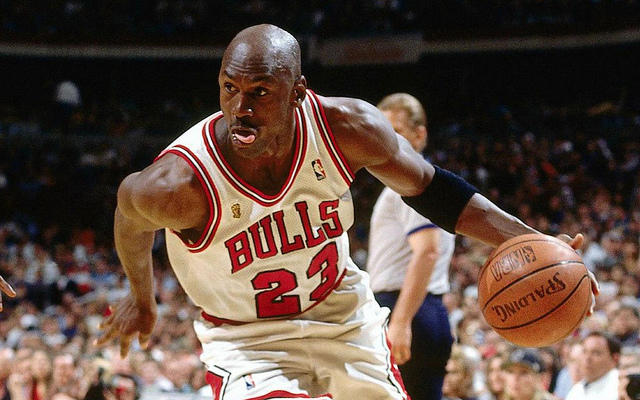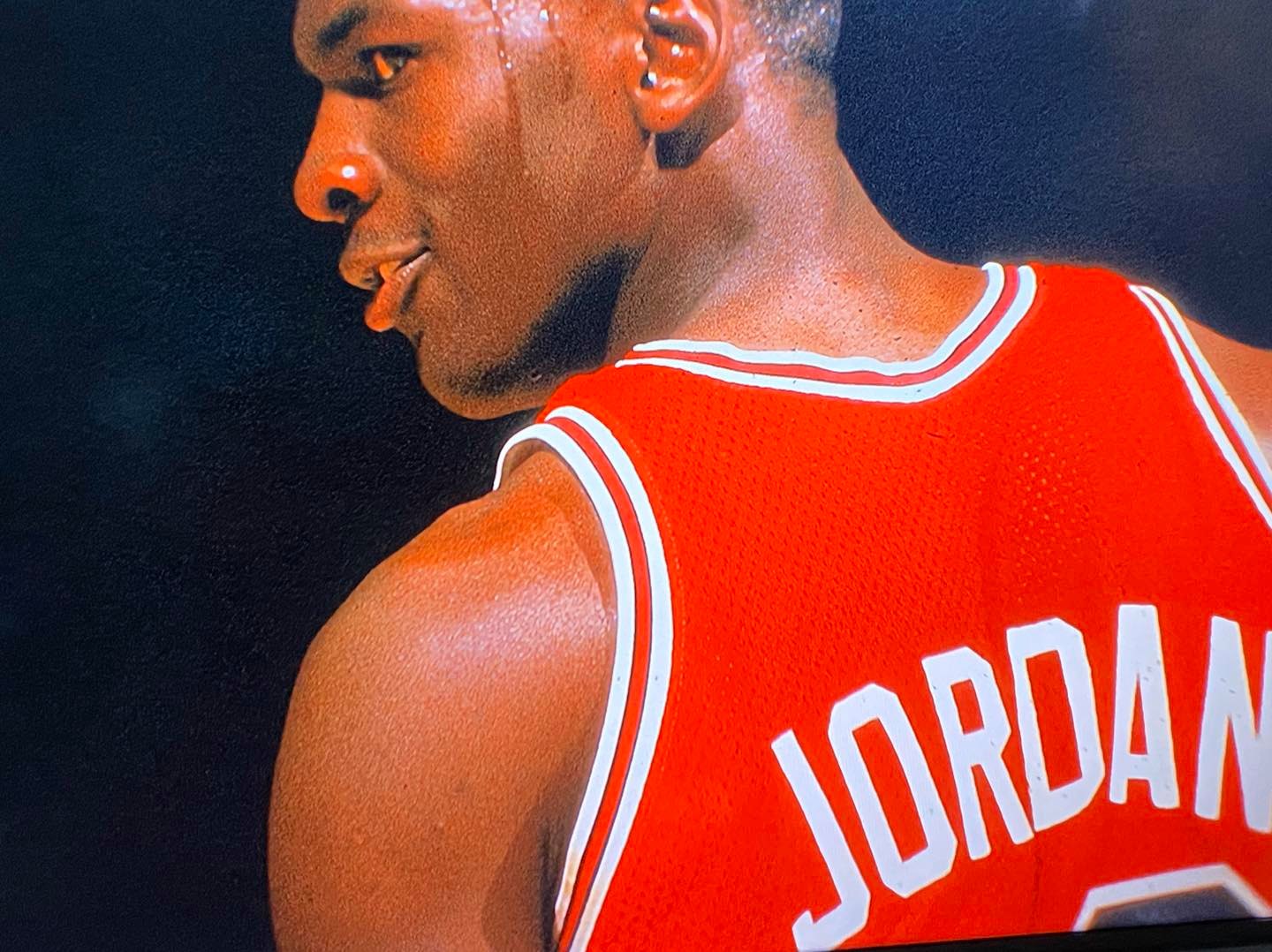GOAT – Michael Jordan’s basketball career – Part 2
In Michael Jordan’s career Part 1 we looked at his start and rise though the world of basketball and the NBA, we pick up where we left off in 1991.
The Golden Years – Chicago Bulls

Photo Credit – Flickr
Even with the star power of Jordan, an NBA Championship eluded the Bulls, but the 1990€“91 season would be the turning point. The Bulls finished in first place in their division for the first time in 16 years and set a franchise record with 61 wins in the regular season, Jordan won his second MVP award after averaging 31.5 ppg on 53.9% shooting, 6.0 rpg, and 5.5 apg for the regular season.
With another super star in the making – Scottie Pippen, the Bulls had elevated their play further, and in the playoffs they advanced to the Eastern Conference Finals, where they faced of against the Detroit Piston once again, but this time the Bulls beat the Pistons in a four-game sweep.
The Bulls had made NBA Finals for the first time in franchise history, and Scottie Pippen and Jordan would lead their team against the Los Angeles Lakers. The Bulls won the series four games to one, and compiled a 15€“2 playoff record along the way. In Michael Jordan’s first Finals appearance, he would show the world again just how good he was Jordan posted per game averages of 31.2 points on 56% shooting from the field, 11.4 assists, 6.6 rebounds, 2.8 steals, and 1.4 blocks and his first NBA Finals MVP award
Pippen and Jordan would help the Bulls dominate over the next 2 seasons. In 1991-92 Jordan won his second consecutive MVP award and made the NBA final once again, this time against the Portland Trail Blazers. The Bulls went on to defeat the Blazers in six games. Jordan was named Finals MVP for the second year in a row.
The 1992-93 season saw the Bulls sweep through the league again meeting Phoenix Suns in the Finals. The Bulls won their third NBA championship, lead once again by Jordan who became the first player in NBA history to win three straight Finals MVP awards. He scored more than 30 points in every game of the series, including 40 or more points in 4 consecutive games. Jordan was at the peak of career and thee biggest sports star in the world.
The Dream Team
Jordan had previously played for Team USA as an amateur at the 1984 Olympics where they won gold. He would return in 1992 where the historic Dream Team assembled for the USA mens basketball team. The all star team which included Scottie Pippen of the Chicago Bulls, John Stockton and Karl Malone of the Utah Jazz, Magic Johnson of the Los Angeles Lakers, Larry Bird of the Boston Celtics, Patrick Ewing of the New York Knicks, Chris Mullin of the Golden State Warriors, David Robinson of the San Antonio Spurs, and Charles Barkley of the Philadelphia 76ers.
Team USA demolished every team at the 1992 Barcelona Olympics to win gold. And Jordan and fellow Dream Team members Ewing and Mullin are the only American men’s basketball players to win Olympic gold medals as amateurs and professionals,
Retirement!
It was evident that after the 1993 season and media circus surrounding him at the Sumer Olympics, Jordan was tiring at life on tip of the world. Gambling problems, personal problem and strong rumours that he had been suspended from the NBA circled. On October 6, 1993, Jordan announced his retirement, citing a loss of desire to play the game. Jordan would also later stated that the death of his father three months earlier also shaped his decision.
Baseball Career
Jordan then further shocked the sports world by signing a Minor League Baseball contract with the Chicago White Sox on February 7, 1994! The White Sox were another team owned by Bulls owner Jerry Reinsdorf and Jordan has stated this decision was made to pursue the dream of his late father, who had always envisioned his son as a Major League Baseball player.
The most successful teams in the NBA
I’m back!

In March 1995, Jordan decided to quit baseball due to the ongoing Major League Baseball strike. On March 18, 1995, in a move certain to break the internet today, Jordan announced his return to the NBA through a two-word press release: “I’m back”, Jordan’s return was global media headlines, he returned to the Chicago Bulls who were a shadow of their 1992-93 run and NBA Championship.
Wearing the number 45 jersey (as the Bulls had retired the number 23 in honour of Jordan) Jordan reignited his old team, and even though he not played an NBA game in a year and a half, Jordan played well remarkably well in his first few games back upon his return, Boosted by Jordan’s comeback, the Bulls went 13€“4 to make the playoffs and advanced to the Eastern Conference Semifinals against the Orlando Magic. Magic won the series knocking the Bulls out of the playoffs.
Second three peat -1995-1998
1995 saw the addition of another superstar, Dennis Rodman. The Bulls and with Jordan back to full force, dominated the league, starting the season at 41€“3. The Bulls eventually finished with the then-best regular season record in NBA history, 72€“10, Jordan led the league in scoring with 30.4 ppg and won the league’s regular season and All-Star Game MVP awards. The Bulls defeated the Seattle SuperSonics 4€“2 in the NBA Finals to win their fourth NBA championship. Jordan was named Finals MVP for a record fourth time, surpassing Magic Johnson’s three Finals MVP awards
In 1996-97 the Bulls once again advanced to the Finals, where they beat Utah Jazz in six games, Jordan received his fifth the Finals MVP award.
Jordan and the Bulls reign at the top continued in the 1997-98 season with 62€“20 record, he led the league once more with 28.7 points per game, securing his fifth regular-season MVP award, plus honors for All-NBA First Team, First Defensive Team and the All-Star Game MVP. The Bulls would once again face off against Utah Jazz in the NBA final winning their sixth NBA championship and achieving a second three-peat in the decade.
Jordan led all scorers averaging 33.5 points per game, including 45 in the deciding Game 6. Once again, he was voted Finals MVP for a sixth time which became and still is one of his many records.
Second Retirement
1999 would see a period of turbulence and change for both Jordan and the Bulls. With Phil Jackson’s contract expiring, the pending departures of Jordan’s main partner on the courts, Scottie Pippen and Dennis Rodman looming, Jordan retired for the second time on January 13, 1999.
2000 – A new Era
January 19, 2000, Jordan returned to the NBA not as part owner and president of basketball operations for the Washington Wizards. Jordan controlled all aspects of the Wizards’ basketball operations, and had the final say in all personnel matters. Opinions of Jordan as a basketball executive were mixed. Then Jordan hired his old Chicago Bulls head coach, Doug Collins, as Washington’s coach for the upcoming season, a decision that many saw foresaw as another Jordan return.
And return he did. In September 25, 2001, Jordan returned to the NBA to play for the Washington Wizards. In a somewhat injury-plagued 2001€“02 season, he still managed to led the team in scoring (22.9 ppg), assists (5.2 apg), and steals (1.42 spg). A torn cartilage in his right knee ended Jordan’s season after 60 games in 2002.
Neither of Jordan’s final two seasons resulted in a playoff appearance for the Wizards, but his records kept rolling in. Playing in his 14th and final NBA All-Star Game in 2003, Jordan passed Kareem Abdul-Jabbar as the all-time leading scorer in All-Star Game history (a record since broken by Kobe Bryant) Even though he turned 40 during the season, he scored 20 or more points 42 times, 30 or more points nine times, and 40 or more points three times. Then in February 21, 2003, Jordan became the first 40-year-old to tally 43 points in an NBA game.
Jordan played in his final NBA game on April 16, 2003, against the Philadelphia 76ers.
Talent Backer is a media platform for emerging athletes to tell their stories and promote themselves for sponsorship.
Get in touch hello@talentbacker.com if you have a story to tell.
Follow Talent Backer:
.
